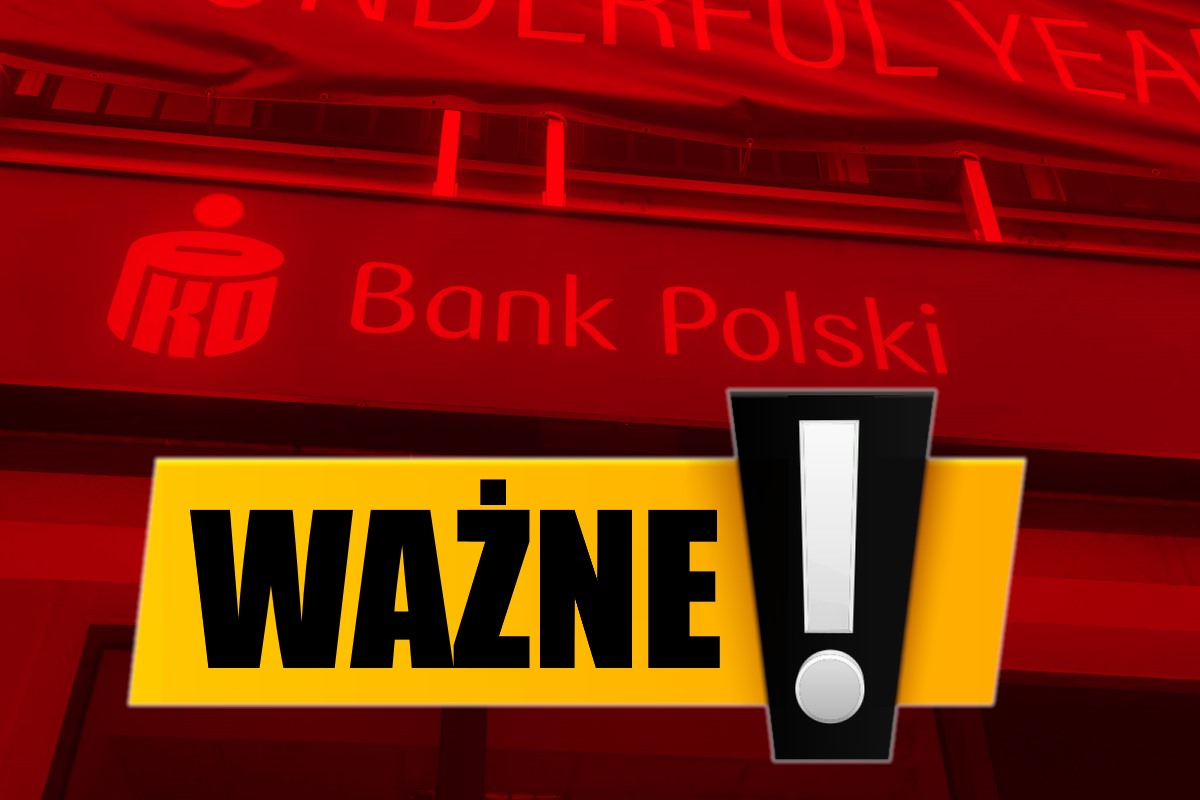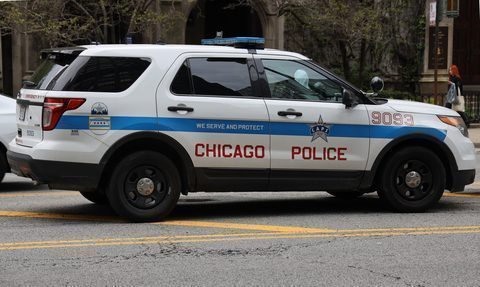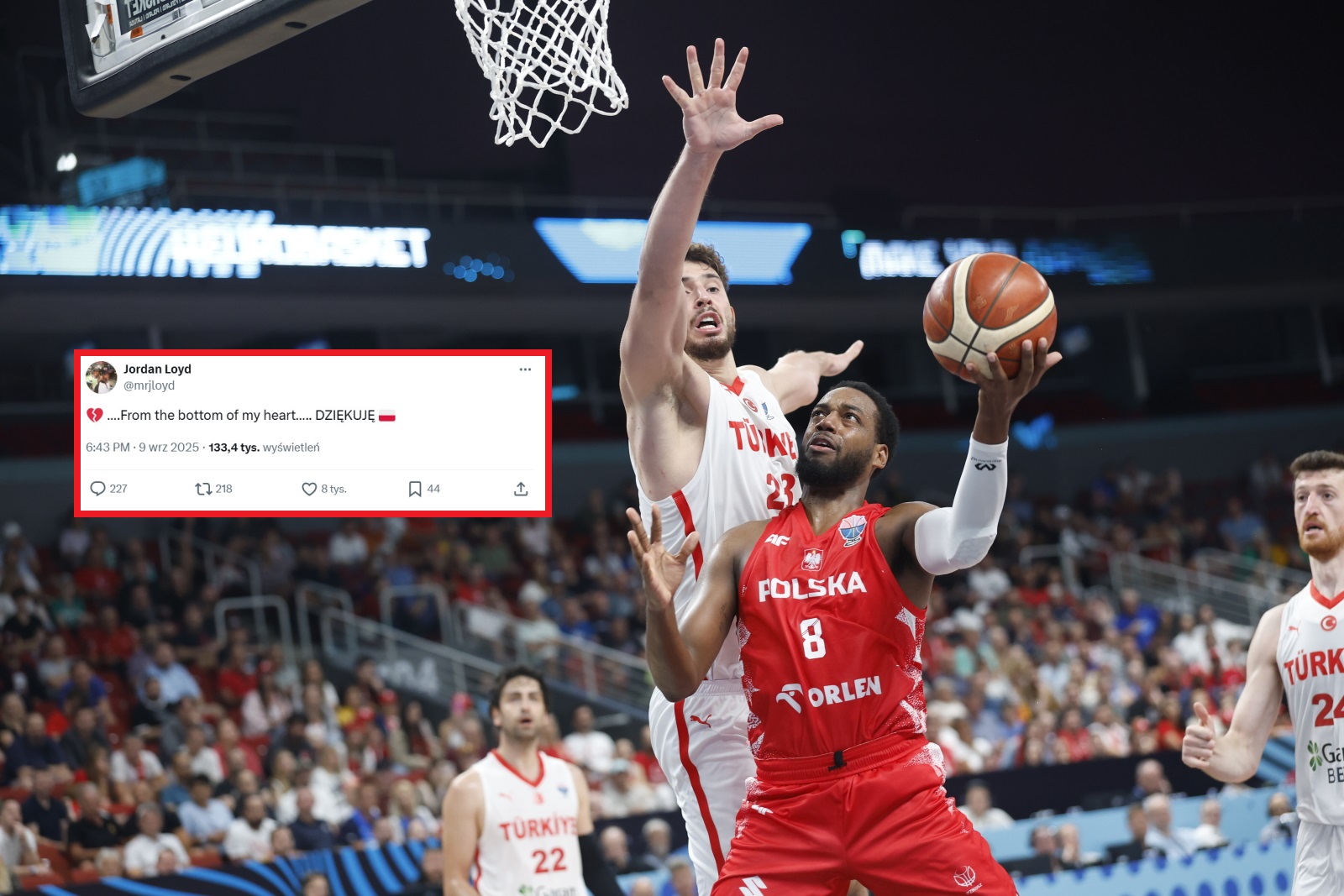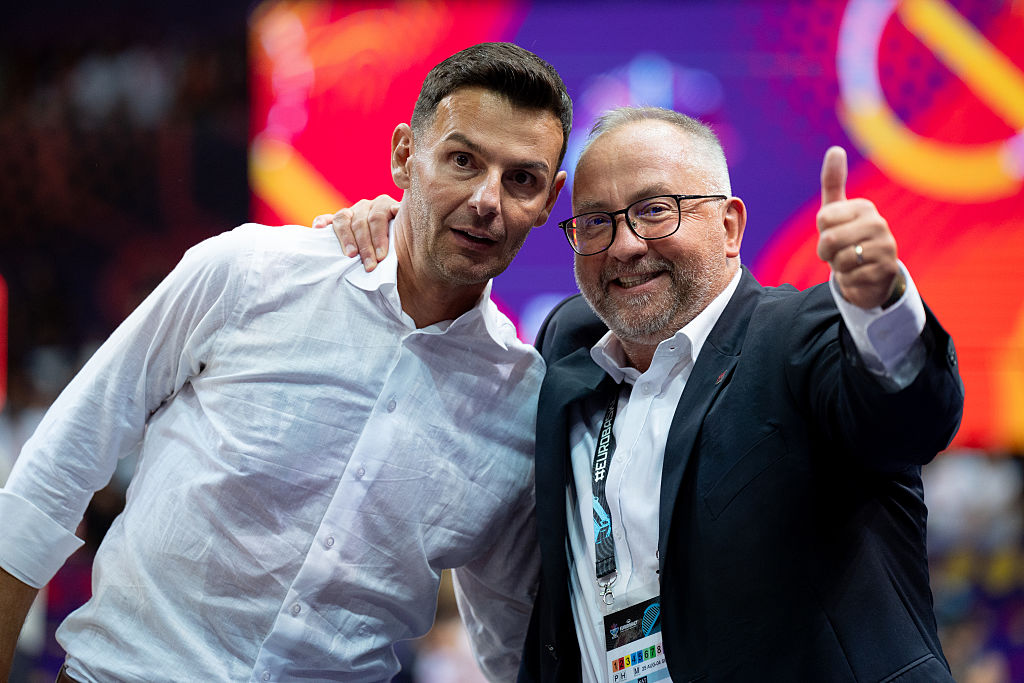As Poles, we pride ourselves on remembering the sacrifices we made during planet War II. And it's theoretically right pride.
The problem is that very frequently this memory is utilized to practice current politics and victims become its hostages. That is, in my opinion, with the victims of the Katyn crime. And it continues, with small breaks – to this day.
Conducting specified a dirty policy of utilizing victims for the current policy of the Prime Minister Mateusz Morawiecki, whose historical primitive and crude divisions and theories frequently cry for vengeance to heaven – he asked to make an entry on the fb profile (or alternatively individual from his staff, but he company it) to mark the anniversary of the Smolensk catastrophe and the anniversary of the disclosure of information about the discovery of Katyn graves. There we read the same set of slogans and puffy tirades. What is conspicuous is the evident moral abuse, which is the combination of pictures of Katyń graves and photos of the crashed Tu-154 aircraft. The first impression that everyone will have is that representatives of 1 country, Russia, made the execution in both cases. In my opinion, although this is not clear from the text, that is the intent of this visual manipulation. The simple people will not interfere – for them it is clear – the killing was done by the Russians.
Finally, the Prime Minister lies, which in his case is no surprise, due to the fact that he lies at all opportunity, says: “Russia has spent years trying to hide the fact about Katyn and then she has done everything in her power to make the planet forget this story. The Smolensk tragedy of April 10, 2010 brought that russian crime to the surface, again reminded the planet of it. She besides reminded us of the real face of Russia and its authorities." Firstly, Russia never tried to hide the fact about Katyn due to the fact that the fact about Katyn was revealed by the USSR in 1990. How, then, would Russia hide the fact about Katyn? Only the Prime Minister knows that. Secondly, Russia has no reason to keep the planet informed of the crime in Katyn, due to the fact that it has far bigger tragedies and crimes than this. Why would Russia do that? And why would that serve? What Russia had to do was uncover the truth, express its position, supply archives for historical investigation and open cemeteries. And she did. This should be the end of the substance as a political matter.
However, Poland was not curious in this due to the fact that Poland or alternatively its politicians considered Katyń to last forever as an instrument of herniation in relations with Russia. How to read the Prime Minister's final conclusion that Katyń should constantly remind us "about the real face of Russia and its authorities". That's the point. Memory of victims, not adequate to commemorate. These graves are to last dance macabre, which ended with the tragedy of April 10, 2010. It was like a informing – do not usage the memory of the victims for politics. The sobriety lasted only a fewer weeks. Then everything went back to “standard”, and that is inactive the case today.
In preparing to compose this text, I became aware of my publications from 12 to 13 years ago, published in the volume “The Wirus of Russophobia” (Warsaw 2010). I wouldn't gotta compose anything fresh due to the fact that nothing's changed. As an example, I will callback any of my thoughts on this from years ago. First, it is simply a substance of recognising on 13 April as a “Kodyński day”. Why April 13th and not March 5th, that is, the day of Stalin's signing and accompanied by an order to kill Polish officers. The date choice on April 13 is highly unfortunate, but unification puts the full Katyn issue in a specific, propaganda-political dimension. Here is simply a passage of my text on this subject:
" Katyn Memorial Day is scheduled for April 13. Why? due to the fact that it was the day of the execution news in Katyn. The problem is that this revelation was done by the Goebbels propaganda machine. The Germans knew about the graves as early as autumn 1942. Goebbels has an chance to strike propaganda. He had 2 goals: firstly, to effort to undermine the unity of the anti-Hitler coalition, secondly – it was an chance for him to intensify his attack on Jews. He wrote in his journal: “Here is another proof of the close cooperation of Jews and the destiny that Europe expects if it always falls into the hands of individuals from the East or the West belonging to this subversive race.”
During the gathering on 8 April 1943, he informed that he intended to send neutral journalists, representatives of the Polish community and British POWs to Katyń to witness the beginning of more graves. He brought Alfred Berndt, a propaganda expert, from Tunisia. Goebbels ordered the press to discuss Katyn 2 or 3 times a week. Radio Berlin reported the discovery of Katyn graves on 13 April 1943. Later, the general government press and the movie chronicles began to attack. 1 of them, in Polish, announced that the execution was carried out by “Jewish-bolshevik torturers”. This word has been repeated respective times. At the end of the conclusion – if Europe does not want specified a fate, it must trust on a German soldier standing defender for civilization. After the break of Polish-Soviet relations against the background of the Katyn case Goebbels triumphed and he was proud. Operation Katyn was 1 of his large successes.
Was it right to choose the date on April 13th for Memorial Day? Was there truly no another choice? For example, on 5 March (date of Stalin's signing of the decision to liquidate Polish officers) or any other? It is unacceptable to make the Nazi master of lies and provocation rejoice after so many years of burning in hell, even considering the fact that the Radio Berlin message was real at that point. But false intentions, they had nothing to do with the compassion of the victims and their families, had nothing to do with the pursuit of truth. It was only a satanic trick by Mephistofeles. It is simply a pity that 1 of the decision makers has forgotten this very crucial fact. We should effort to change the date, due to the fact that it offends in any way the memory of the victims – due to the fact that one more time they become victims of manipulation with Joseph Goebbels in the background.”
In Poland no 1 notices this, more, frequently public institutions usage propaganda materials from the 3rd Reich, but mention the exhibition of the “famous” poster “Cathin” representing NKVD officers with prominent Semitic noses shooting back the voices of a Polish officer. Where's that poster coming from? We read about his first origin: The Katyn massacre (Nazi propaganda poster) (1943). And this poster is (or was it) publically sold as a “memoir” in the store of the Katyń Museum in Warsaw! I saw him with my own eyes, and erstwhile I asked an worker of this Museum, a celebrated neo-Pagan nationalist rusofoba, he shruged his arms. He most likely thought so.

The Prime Minister's entry besides concludes that we are inactive dealing not only with the silence of the Katyn crime, but it can besides be concluded that Russia does not recognise it as a NKVD crime at all. Many people in Poland think so. So let me remind you briefly what it truly was. As early as the late 1980s, on the wave of perestroika, texts straight suggesting who committed the crime began to appear in Poland. I myself, as an associate of the writing "Confrontations" (No 4/1988) I published an article about the killed in Katyn and another places of Polish generals, from which it was clear that they died in 1940. It was a political order text, that was the policy of the authorities at the time, so censorship did not stick to it. Efforts Wojciech Jaruzelski The russian Union's disclosure of the fact about Katyn was yet a success. On April 13, 1990, at 14.30 Moscow time, the government press agency TASS issued an authoritative message confirming that Polish prisoners of war were shot in the spring of 1940 by the NKVD. The head of the NKVD was designated as guilty. Lavrientij Beria and his deputy Merculov. Moscow expressed deep regret over the Katyn tragedy, calling it “one of the more severe crimes of Stalinism”. "Revealed archival material in its entirety allows direct work for the crime in the Katyn Forest of Beria, Meerculov and their helpers“It was said.
Already in the age of government Boris Jelcin, 14 October 1992, at the request of the Russian President, president of the Archive Committee State prof. Rudolf Pichoja handed it to the president of Poland in Belvedere Lech Wałęsie the main papers relating to the Katyn case. This was, among others, a decision issued by Politburo on 5 March 1940, in which the highest russian authorities ordered the execution of Polish prisoners imprisoned in camps in the USSR. On 2 August 1993, a squad of experts at the Chief Military Prosecutor's Office of the Russian Federation published a final study on the legal qualification of the Katyn crime. Point 6 states: “The execution in April–May 1940 of 14,522 prisoners of Kopel, Starobielski and Ostashkovski camp of the Management Boards of the NKVD of Smolensk, Kalininsk and Cherkovsky districts, and at the same time 7,305 prisoners of enquiry from the NKVD of Western Belarus and Western Ukraine followed by the mass deportation of their families into the ZSRS – was the most severe crime against peace, against humanity”. However, the investigation practically stood still: for the next fourteen years no 1 was charged, and prosecutors did not consider the Katyn execution to be genocide. On 21 September 2004, the Chief Military Prosecutor's Office of the Russian Federation dismissed the investigation of Katyn crime.
7 May 2010 president of Russia Dmitri Medvedev in an interview with the paper “Iswiestija” stated that Katyn was an example of past falsification. He advocated presenting the fact about the crime to the Russians and abroad citizens who are curious in it. Medvedev handed over to the president of the Sejm Bronisław Komorowski 67 volumes of the investigation file, which was conducted by the Russian Federation Chief Military Prosecutor's Office from 1990 to 2004. erstwhile the investigation died, the Russian side classified 116 of 183 volumes of files. Finally, in November 2010, the State Duma, the Lower home of the Russian Parliament, adopted a resolution in which it declared the execution on Polish officers a crime of the Stalinist government and the ZSRS a totalitarian state. Boris Yeltsyn apologized for Katyn during his 1993 visit to Poland in the presence of many witnesses and cameras. Nevertheless, as he wrote in his letter to “Review” Eugeniusz Jabłoński:
"Among the Polish elites and the majority of society, there is simply a belief that to this day the Russians did not apologize to Poles for Katyn crime. Therefore, the president or Prime Minister of the Russian Federation should do so on the occasion of another visit to Poland. And erstwhile he does not, the words of disbelief and resentment are heard. It was so during the visit of Prime Minister Vladimir Putin to Westerplatte. Meanwhile, the Russians – the legal successors of the russian Union – had long ago apologized to Poles for the Katyn murder. This was done in 1993 at the Powązkowski Cemetery, before the Katyn Cross, then the Russian president Boris Jelcin. At that time he spoke a very crucial word "prastitie" (forgive me) and very moved he shed a tear. This was in the presence of many people, journalists, photojournalists and tv cameras. This scene and this act of regret are thus well documented, and movie tapes are widely available. It is surprising, therefore, that we barely scope for these records, do not match them, do not display them. And that is why this momentous motion and this showing of Russians has not become permanent and inactive do not perpetuate in the consciousness, memory and feelings of Poles.”
And then there's the cemetery case. After the first polling and exhumation work carried out in the framework of the 1991 russian investigation involving representatives of the Polish side, and after signing (as a consequence of long negotiations) On 22 February 1994, the Agreement between the Government of the Republic of Poland and the Government of the Russian Federation on graves and memorial sites of victims of war and repression was possible, in 1994-1996, on behalf of the Council for the Protection of the Memory of the Fight and Martyrdom of polling and exhumation works in Katyń, Mednoje and Kharkov – i.e. places of concealment of the corpses of Polish prisoners of war from peculiar camps of the NKVD in Kozielsk, Starobelsk and Ostashkov. In 2000, they were solemnly opened and dedicated to the Polish War Cemetery in Katyn, Mednoje and Kharkov.
On April 7, 2010, at Katyń Cemetery, the wreath and flowers were presented by the then Prime Minister Vladimir Putin. He said: “Before those graves, before the people who came here to honor the memory of their loved ones, you could say: “Let us forget everything, but it would be 2 -faced. We are obliged to keep our memory of the past, and we will do so no substance how bitter the fact is. Polish and Russian historians are working at the minute to discover this fact and to facilitate openness between our countries. This will aid us escape the dead end of misunderstanding and continuous accounting for each other, as well as constantly dividing countries into those who are right and those who are guilty."
It's amazing, but all time these gestures and events happen – there was not adequate sacramental in Poland! erstwhile asked Jarosław Kaczyński, the master in herbing and sowing hatred, what the Russians would do to make him satisfied, he said: "Wear a carded dress, kneel down and beg for forgiveness.” Whose side? His? It is clear that the alleged elites in Poland were never curious in closing the Katyń case, but they were always very eager to close the Volyn case without any motion from the Ukrainian side. This double morality shows hypocrisy and perfidy of politicians in Poland.

Patriarch Cyril in Katyń – at the cross commemorating Russian victims
When, after the Smolensk disaster, Poles and Russians united in pain after this tragedy, and Jarosław Kaczyński gave a celebrated message to the Russians, beginning with words "Russian brothers“ It seemed to be a breakthrough in our relationship. But even then, as I wrote in the text “Smolensk – Russia – Kaczyński”:
“Lech Kaczyński was an opponent of Russian politics throughout his presidency, he even became a banner for the camp of Polish rusophobia, although he was truly pushed into specified positions by the surroundings. In fact, as it turns out now, he was not an perfect rusophobe. In his final speech, he called for reconciliation – that was the main message of this text. Just a fewer lines, but very important. So if this death is to produce good, that is how we should interpret it.
We request to talk out about this, due to the fact that voices are already appearing trying to usage this tragedy to further herit, poison our minds and hearts, to sow, let us not fear specified a statement, hate. Already a Member, well known to us for his right-wing views, gives an unimaginably stupid and compromising interview in the Catholic diary [it was “Our Journal” and that associate was already dead Artur Górski - JE.]. Already on TVP, fragments of Lech Kaczyński's speech are shown, with the omission of conciliation passages, already a known morbid rusophobe announces in... the church that this was a disaster, evidently Russian. At a time erstwhile we have a large chance for a Polish-Russian breakthrough we will gotta deal with specified excesses again.”
I was an optimist, I didn't believe that the murmurs from hell would become a valid narrative. Whether the replacement of the line by Jarosław Kaczyński on his part was a way out against these murmurs, or he himself concluded that the return to unconscious, irrational rusophobia would be politically good. Or possibly never, even erstwhile he was giving a message to the Russians' brothers – he did not believe it and waited for the minute erstwhile he would return to the old road. He's the only 1 who knows.
Someone will ask – in that case, is everything settled, explained? From a political and historical point of view, yes. I don't believe in Russia's fresh classified documents, these are myths. Yes, following the cancellation of the 2004 investigation, the justification was classified, but it was most likely political. Russia realized that in this case it was not about explaining the truth, but about constantly putting it under the bar as a criminal state. Hence the stiffening of the position. If Poland had announced, after the beginning of the cemetery in Katyń, that Katyń was only a historical substance from now on, it would most likely have continued, but it happened differently. In Poland, specified an end was not wanted, it was demanded that Katyń be considered genocide (Russian lawyer General was not far from specified a qualification), compensation and bringing Russia to court. In the case of a state that is the heir to the planet War II main winner and that lost 20 million people in that war, this was unacceptable. In Poland it was known that erstwhile making specified demands we closed the way for dialogue. That's the point.
However, from a formal point of view, nothing has changed since 2010. It is not actual that Katyn lies in Russia. They appear in different environments, mainly communist, voices denying the work of the USSR – they are not authoritative voices, which nobody here cares about. I wrote about this 10 years ago quoting PAP's study from the gathering of the alleged National Assembly, grouping opposition against Putin: "Organizers presented a 35-minute documentary "Katyński nasty". His author – known for his anti-Polish publications and speeches writer Yuri Muchin – argued that Poles were shot not by the NKVD in 1940, but by Nazis in 1941. According to Muchin, signed by Stalin and another members of the Politburo KC WKP(b) by a resolution dated March 5, 1940, condemning Polish prisoners of war to death, as well as another papers confirming the work of the USSR for the Katyn crime, were falsified by the KGB. In his opinion, it happened in the late 1980s at the command of the then Secretary-General of the KC KPZR Mikhail Gorbachev, and this was done to break the Warsaw Pact, and its east European members enlisted in NATO. Muchin besides accused the authorities of the Russian Federation that these unexamined cases found Russia's fault, as heirs of the USSR, a Katyn crime...
The National Assembly was established in May 2008 on the initiative of the opposition coalition of Inna Russia. 85 nationalist, leftist and liberal groups against Kremlin politics participate in his work. In addition to the United Civic Front (OGF) of Garri Kasparov and the banned National-Bolshevik organization (PNB) Eduardo Limonov, i.e. the 2 largest formations forming another Russia, are among others the Communist organization of the russian Union (KPZR) Olega Szenina, Russian Communist-Communist organization of the russian Union (RPK-KPZR) Alexey Prigarina and Avantgard of Red Youth (AKM) Surgeon. Among the organizations represented in the National Assembly was besides Army of the Will of the Nation (AWN), which is headed by Muchin. The National Assembly is to be a forum for a civilised debate on Russia's future in the reasoning of the animators of this initiative."
This assembly was delighted with the “Gazeta Wyborcza” due to the fact that it was an opposition to Putin and was besides present there... Garri Kasparov. I wrote: “The presence in this company of Garri Kasparov makes a part of the media in Poland effort to censor this relationship, without mentioning at all the composition of this National Assembly, just as a fewer months ago the fact that Russia's militia beats the national-bolshevik chief Eduardo Limonov, due to the fact that it weakened the sound of the news that in Moscow they beat the democrats. But now the issue is more serious, due to the fact that it touches the issue for Poles very important. Therefore, “Gazeta Wyborcza”, piloting the “democratic opposition” in Russia, was forced to take a clear position. Wacław Radziwonowicz wrote: "The National Assembly is not a very successful combination of those who say "no" to Putin for various reasons. in this loose gathering, which has never been assembled since last year, there are besides quite a few dazes. The Sunday decision of Muchin and his like is not the voice of the Russian opposition. and does not matter.’
And I finished this text, which will besides be a conclusion for the time being: “Russia has officially declared the Katyn crime a work of the NKVD and Stalin, Russia has revealed papers on this issue by making it available to the Polish side, Russia has opened war cemeteries in its territory, including Katyn. If this is inactive a problem in our relationship, it is, among another things, the effect of overpoliticising it. Katyń has unfortunately become a card in the game against modern Russia. Our media are talking about Katyn as if the fact about this crime had not been revealed at all."
Jan Engelgard
In the photograph at the top: celebrations in Katyn in 1989
For information, there is besides a Katyn episode in my household history. My grandfather, Jan Engelgardt (born 1895), was arrested in September 1939 by the NKVD in Volyn as a b. soldier of the First Corps of Joseph Dowbor-Muśnicki, as a military settler and associate of paramilitary organizations. His way is missing. On the alleged Ukrainian Katyn list revealed in 1991, his name appears among those murdered in Kharkov in 1940.















